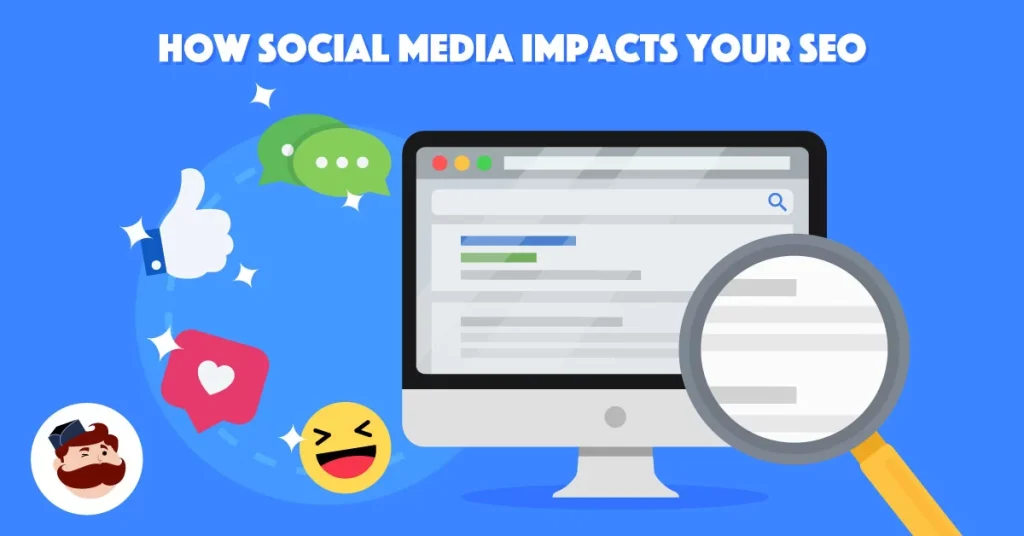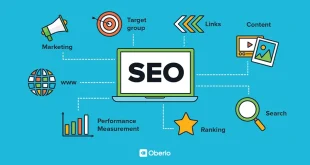How social media affect SEO this term decides the relationship between social media and SEO (Search Engine Optimization) is more entwined than ever in the modern digital world. This article delves into how social media affects SEO strategies and provides insights into optimizing your online presence.
Understanding SEO
Before exploring the impact of social media on SEO, it’s crucial to grasp the fundamentals of SEO. SEO is the umbrella term for a number of techniques used to raise a website’s exposure. It also decide position on search engine results pages (SERPs).
Impact of Social Media
Social media platforms serve as dynamic channels for brand promotion, engagement, and content distribution. Their impact on SEO lies in their ability to amplify brand visibility, drive website traffic, and foster backlink opportunities.
Importance of Backlinks
Backlinks remain a cornerstone of SEO, indicating to search engines the relevance and authority of a website. Social media platforms facilitate backlink acquisition by providing opportunities for content sharing and engagement.

Content Optimization
Optimizing content for both social media and search engines is essential for maximizing visibility and engagement. This involves creating high-quality, relevant content tailored to your target audience’s interests and preferences and learn how social media effect SEO.
User Engagement
Engagement metrics, such as likes, shares, and comments, signal to search engines the popularity and relevance of your content. Encouraging user engagement on social media can indirectly impact SEO by enhancing brand credibility and authority.
Unveiling the Influence of Social Media on SEO
Understanding the impact of social media on SEO is crucial for businesses. To navigate the ever-evolving landscape of online visibility and engagement.
Amplifying Brand Visibility
Social media platforms serve as bustling hubs of activity, teeming with conversations, interactions, and content sharing. Harnessing the power of social media amplifies a brand’s visibility, extending its reach far beyond traditional search engine results pages. Social media platforms offer businesses global reach through billions of active users, providing unparalleled opportunities for global engagement.
Driving Website Traffic
One of the most tangible impacts of social media on SEO lies in its ability to drive traffic to websites. Social media content sharing boosts website traffic and engagement. While referrals create a diverse backlink profile, signaling a website’s popularity and authority to search engines.
Fostering Backlink Opportunities
Backlinks remain a cornerstone of SEO, and social media platforms offer fertile ground for cultivating these valuable links. When users engage with content shared on social media, they often create organic backlinks by sharing the content social profiles. Additionally, active participation in relevant social media communities and forums can lead to collaboration opportunities and natural backlink acquisition.
Enhancing Content Distribution
Social media’s viral nature allows businesses to rapidly distribute shareable content. It also amplify their message, and increase brand awareness, driving traffic back to the source website. This organic content distribution not only boosts SEO metrics but also fosters brand advocacy and loyalty among engaged followers.
Engaging with the Audience
Social media significantly impacts SEO by fostering meaningful interactions. It also engaged with the audience, enabling instant feedback, building trust, credibility, and brand loyalty, which positively impacts SEO metrics.

Traffic Generation
The impact of social media on SEO extends far beyond mere visibility and traffic generation. Social media platforms enhance brand engagement, enhancing online presence, and driving digital growth.
Unlocking the Power of User Engagement in SEO
In the digital realm, user engagement stands as a cornerstone of effective SEO strategies. It plays a pivotal role in driving organic growth. Let’s delve into the various facets of user engagement and its profound impact on SEO outcomes.
Fostering Meaningful Connections
At the heart of user engagement lies the ability to foster meaningful connections between brands and their audience. Businesses create user-centric experiences through content, social media, and email campaigns, and advocacy, paving the way for sustainable growth.
Encouraging Interaction and Participation
User engagement transcends passive consumption, encouraging active interaction and participation from the audience. Engaged users in digital communities contribute to vibrancy and dynamism, fostering interaction and participation. The brands can use to expand reach, spark conversations, and deepen community.
Elevating Content Relevance and Quality
User engagement is vital for content relevance and quality, offering insights into audience. The behavior and preferences, enabling brands to improve their content strategies. By consistently delivering high-quality, relevant content, brands can enhance user engagement and strengthen their SEO performance.
Driving Social Proof and Authority
Active engagement from users contributes to the accumulation of social proof. This is the signaling to search engines the credibility and authority of a website or brand. Positive reviews, testimonials, and user-generated content serve as endorsements that bolster a brand’s reputation and influence its search engine rankings. By fostering a loyal user base, businesses can boost their online visibility. It also establish themselves as reputable experts in their respective fields.
Optimizing User Experience
User experience is crucial for engagement and SEO outcomes. A well-designed website with seamless navigation, intuitive design, and fast-loading pages boosts visitor satisfaction and improves search engine rankings.

Enhancing brand credibility
User engagement serves as a cornerstone of effective SEO strategies, driving organic growth, enhancing brand credibility, and optimizing website performance. Businesses can enhance their SEO efforts by promoting meaningful connections, encouraging interaction, providing high-quality content, and prioritizing user experience.
Mobile Optimization
With the increasing prevalence of mobile devices, optimizing your website and content for mobile users is paramount. Social media engagement often occurs on mobile platforms, making mobile optimization a crucial aspect of SEO.
Analytics and Monitoring
Regularly monitoring social media and website analytics is essential for evaluating the effectiveness of your SEO and social media strategies. Analyzing metrics such as engagement, traffic sources, and conversion rates can inform future optimizations.
Local SEO
For businesses with a physical presence, optimizing for local search is vital. Social media platforms offer features such as geotagging and local business profiles. By using them we can enhance local SEO efforts and drive foot traffic.
Content optimization for voice inquiries is becoming more and more crucial as voice search usage grows. Social media platforms can serve as valuable channels for gathering insights into conversational search trends and the effect of social media on SEO.
FAQs
Does social media influence search engine ranks directly?
While social signals are not direct ranking factors. They also indirectly influence SEO by enhancing brand visibility and driving website traffic.
How can I optimize my social media profiles for SEO?
Optimize your profiles with relevant keywords, consistent branding, and compelling content that encourages engagement and sharing.
What role do backlinks play in SEO?
Backlinks act as testimonials from other websites, demonstrating to search engines your content’s authority and trustworthiness.
How important is user engagement for SEO?
User engagement signals to search engines the quality and relevance of your content, influencing rankings and visibility.
Why is mobile optimization crucial for SEO?
Optimizing for mobile devices is crucial for enhancing user experience. It also improves search rankings, as most internet users access and content on mobile devices.

Conclusion
In conclusion, the relationship between social media and SEO is symbiotic. With social media serving as a catalyst for brand visibility and engagement. Social media’s influence on SEO can significantly improve businesses’ online presence and promote sustainable growth.
 Daily Blogger News Stay updated with the latest trends and insights. Your reliable source for daily updates and information.
Daily Blogger News Stay updated with the latest trends and insights. Your reliable source for daily updates and information.







